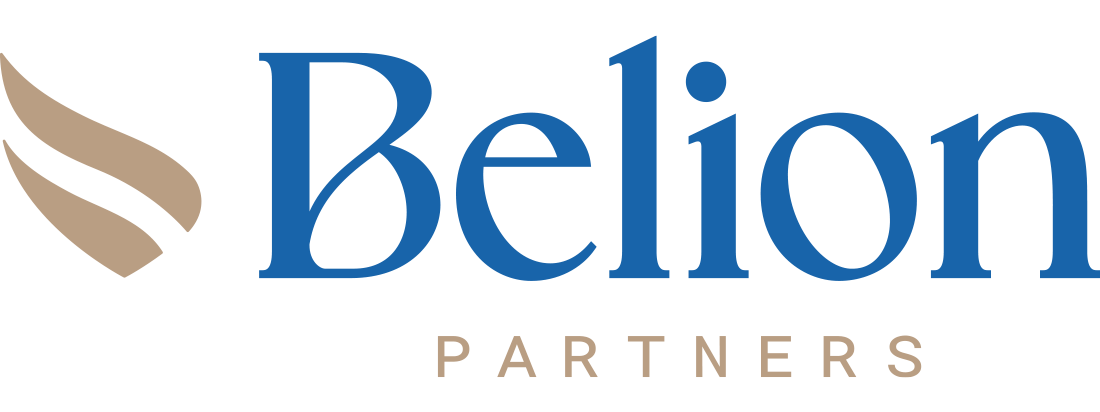Step-by-Step Guide to the Education System in Portugal
Discover the comprehensive education system of Portugal with our step-by-step guide.
The education system in Portugal is renowned for its comprehensiveness, covering primary, secondary, and tertiary education, along with vocational and technical training. The country has made substantial progress in enhancing education accessibility, boasting a high literacy rate and a considerable number of students pursuing higher education. In essence, Portugal's education system reflects the nation's dedication to equipping its citizens with the knowledge and skills necessary for success in a dynamic global landscape.
What's on This Page
- Education In Portugal
- The Portuguese Education System, How Does It Work?
- Portuguese School System Infographic
- Pre-School Education
- Basic Education
- Public Basic Education Vs Private Basic Education
- Secondary Education
- Public Secondary Education vs. Private Secondary Education
- Pros and Cons of Public Education
- Pros and Cons of Private Education
- Does the International Baccalaureate (IB) Exist in Portugal?
- Educational Support for Expat Children
- Support for Children with Special Needs
- Higher Education
- Adult Education
- Vocational Education
- How Can Belion Partners Assist You?
Education in Portugal
Nowadays, education in Portugal is overseen by two distinct ministries: the Ministry of Science, Technology and Higher Education (Ministério da Ciência, Tecnologia e Ensino Superior) and the Ministry of Education (Ministério da Educação). The Ministry of Science, Technology and Higher Education holds jurisdiction over higher education in Portugal, alongside the supervision and formulation of policies aimed at fostering technological and scientific advancement in the country. Conversely, the Ministry of Education is tasked with delineating, coordinating, implementing, and assessing national education policies across all levels, encompassing preschool, primary, secondary, and extracurricular education.
The realm of vocational education, training, and adult education sees shared responsibilities between the Ministry of Education and the Ministry of Labour, Solidarity and Social Security (Ministério do Trabalho, Solidariedade e Segurança Social). Schools operate within designated clusters known as Agrupamentos de Escolas, each equipped with its administrative and managerial entities. These clusters enjoy autonomy in curriculum management, fostering a decentralised approach to governance by collaborating closely with municipal authorities. The municipalities, in turn, are tasked with infrastructure investment, school maintenance, meal provision, and non-teaching staff management.
The higher education institutions possess significant autonomy to administer pedagogical, scientific, cultural, and disciplinary affairs independently. In the autonomous regions, regional authorities are vested with the responsibility of formulating education policies tailored to regional needs, managing human, material, and financial resources through the respective Regional Secretariats for Education.
The Portuguese Education System, How Does It Work?
Compulsory education lasts for 12 years, typically commencing at the age of 6 and concluding at the age of 18, marking the completion of upper secondary schooling. The educational trajectory unfolds as follows:
- Pre-school education: spans from 3 to 6 years of age.
- Primary education: spans from 6 to 15 years of age.
- Secondary education: spans from 15 to 18 years of age.
- Higher education: begins at age 18 and above.
This provides a simple overview of the schooling system in Portugal. We will now delve into each level in detail. It's important to note that education in Portugal is free and universal from the age of 4.
Portugal, being part of the EU, follows the European Qualifications Framework (EQF), a scale used to gauge an individual's education level. The scale ranges from level 1 to level 8, with non-higher education spanning levels 1 to 4, and higher education covering the remaining levels.
In detail:
- Level 0 corresponds to pre-school education.
- Level 1 encompasses the first cycle (grades 1 to 4) and the second cycle (grades 5 to 6).
- Level 2 pertains to the third cycle (grades 7 to 9).
- Level 3 corresponds to secondary education (grades 10 to 12).
- Level 4 corresponds to secondary education (grades 10 to 12), including a professional internship.
- Level 5 covers post-secondary non-higher education.
- Level 6 represents the first level of higher education, the bachelor's degree.
- Level 7 denotes the second level of higher education, the master’s degree.
- Level 8 signifies the third and final level of higher education, the Ph.D.
Portuguese School System Infographic
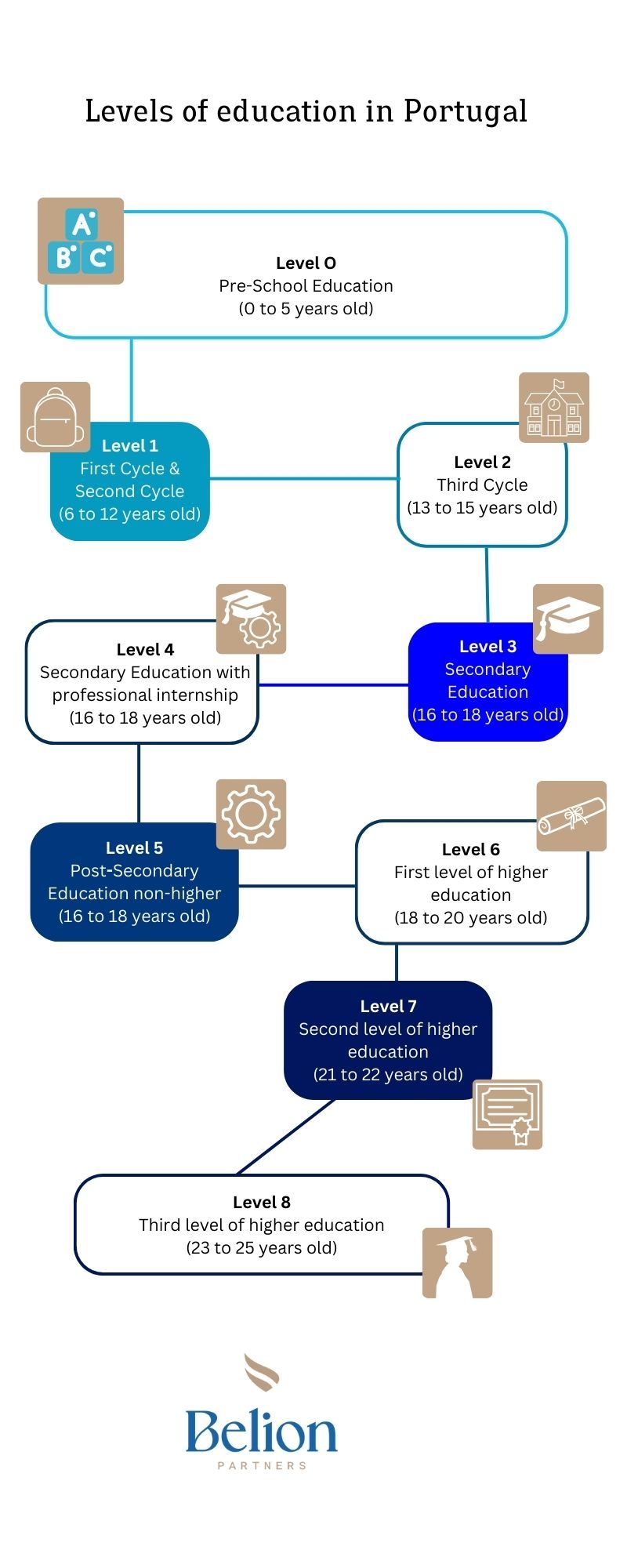
Pre-School Education
At this level, education is not compulsory, giving parents the freedom to manage their child's education. In Portugal, maternity leave lasts for 5 months. After this period, there are various options available for providing level 0 education to the child. Nurseries (known as infantários or creches in Portuguese) are one such option. However, predominantly, education at this stage is provided privately, as publicly funded nurseries are limited and typically reserved for low-income families or families with children with special needs. The Ministry of Labor, Solidarity, and Social Security oversees this type of education.
From the age of 3, children have access to a much broader range of educational opportunities. Although preschool education is not mandatory, it presents a viable option for parents. At this early stage, children interact with their peers, aiding in their learning process and strengthening their emotional and social development.
Basic Education
Basic education in Portugal is mandatory, universal, and free for children aged 6 to 15. It spans a duration of 9 years and is divided as follows:
- The 1st cycle encompasses the first four years of schooling, covering grades 1 to 4.
- The 2nd cycle follows, comprising the subsequent two years, covering grades 5 and 6.
- Finally, the 3rd cycle covers grades 7, 8, and 9.
First Cycle
It is the initial stage of compulsory education in Portugal and involves one teacher covering various subjects such as Portuguese, social studies, mathematics, and English as a foreign language. Occasionally, additional assistant teachers teach subjects like physical education and arts. In the 3rd and 4th years, the curriculum undergoes slight alterations, introducing a broader range of knowledge to the children.
Second Cycle
The second cycle consists of two years, corresponding to grades 5 and 6. At this stage, children have a different teacher for each subject. The subjects included in the first cycle are continued, along with additional ones such as history, geography, and science.
Third Cycle
Grades 7, 8, and 9 constitute an extension of the second cycle, with additional subjects such as physics, chemistry, and a second foreign language. This phase corresponds to lower secondary education.
Public Basic Education Vs. Private Basic Education
Since this stage of education is compulsory in Portugal, there are a variety of schools across the national territory. The majority of locals opt for this option. However, there are still some costs associated with public schools, such as books, school meals, and field trips. The public school system in Portugal maintains good quality. The primary barrier for expatriate children in public schools is the language, as the instruction language is Portuguese. Nonetheless, if expatriates plan to settle in Portugal, it is advisable for their children to learn Portuguese.
The national curriculum is very similar across all public schools in Portugal. It covers a variety of fields, including mathematics, Portuguese, physics, chemistry, history, English, and another foreign language (usually French or Spanish). Public schools typically allocate children based on their residence, and parents commonly need to provide proof of address.
Private schools offer a completely different scenario. They provide a broader array of extracurricular activities, modern infrastructure, and well-funded resources. It’s important to note that international schools also fall under this category. Choosing an international school can be a wise decision for expatriates, as education is taught in the language of the school, such as French at Lycée Français and English at the British School.
To provide a better understanding, we will share with you the basic education curriculum in Portugal:
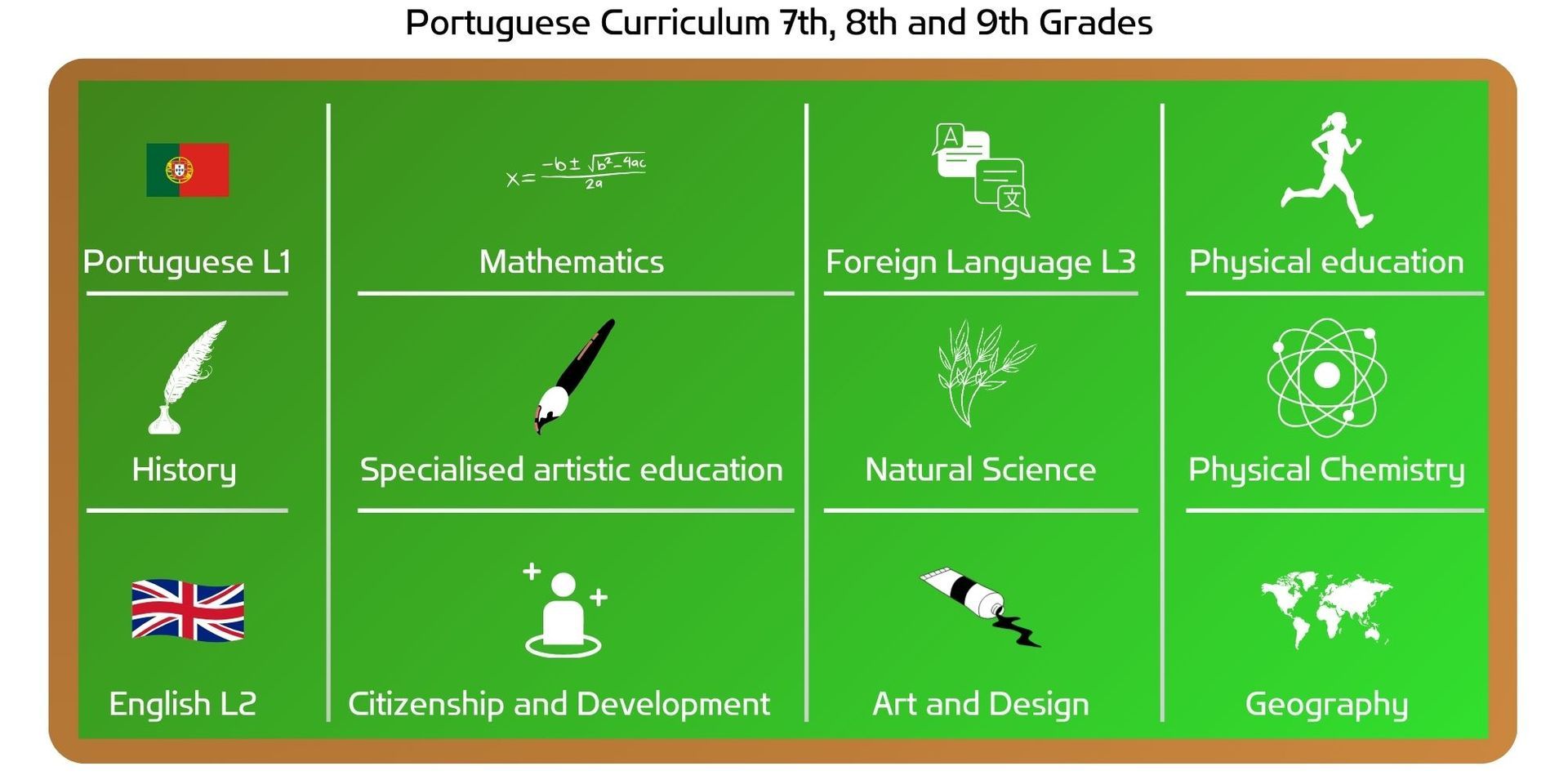
Secondary Education
Secondary education consists of three years, represented by the 10th, 11th, and 12th grades. This marks the final level of the mandatory Portuguese school system and corresponds to levels 3 and 4 of the European Qualifications Framework. The major difference between these two levels is that the latter is more practical and includes an internship component. Level 3 courses, also known as science-humanities streams, are the most common, but there are others as well.
Level 4 corresponds to technical learning, focusing on specific fields of activity with dual certification courses. Both levels provide students with the opportunity to pursue higher education. The internship for level 4 must last at least 6 months. Level 3 offers a more general education, serving as a precursor to higher education, whereas level 4 imparts technical knowledge to students.
To better align with students' interests and abilities, there is an aptitude test administered in the final year of basic education to assist students in selecting their path. Though not mandatory, it is a common practice.
We will also include Level 5, which corresponds to post-secondary non-tertiary education. At this level, students receive high-level technical training closely integrated into the job market, while also allowing for continued studies. Typically lasting between 1 and 1.5 years, it is designed for individuals over 18 years old who have completed the 12 years of compulsory education.
Level 5 courses are divided into four different pathways, with two designed for adult education and the other two for young students. The options for young students include:
- Specialised Technological Courses (CET)
These courses aim to address gaps in Portugal's business sector, particularly in middle management, by responding to a market characterised by rapid growth and constant change.
- Apprenticeship Courses+
This type of Level 5 education involves field training, providing hands-on experience within a work context. It is tailored for adults aged between 18 and 29 years old who meet specific requirements to enrol in these courses.
The Ministry of Education is responsible for overseeing secondary education in Portugal.
Public Secondary Education vs. Private Secondary Education
Similar to basic education, Portuguese public secondary education is known for its high quality and broad offerings. It provides Level 3 education courses and a wide variety of Level 4 courses. However, the offerings differ significantly, as many Level 4 courses are specialised, leading to variations among schools based on their educational staff. Consequently, a student may need to attend a different city to access a specific Level 4 course not available in their hometown.
For those interested in pursuing knowledge in the artistic field, there are specialised artistic courses designed for young people exhibiting skills or talent in any artistic discipline. These courses can be offered in public network schools or in private and cooperative educational establishments.
Private secondary schools in Portugal offer a range of branches for students and their parents to choose from, catering to their preferences. These options include religious schools, international schools, boarding schools, specialised artistic academies, and general private schools. These different private schools typically cover all stages of mandatory education.
General private schools have a less diversified curriculum compared to other private institutions, but they often boast better resources and infrastructure than public schools.
In Portugal, the majority of religious schools are Catholic institutions, reflecting the country's history when Catholicism was the official religion before Portugal became a secular state. Catholicism also boasts the largest following believers in Portugal. However, there are many other religious schools representing different convictions. These schools offer religious studies along with a wide variety of skills and extracurricular education. They often achieve high rankings in annual national exams.
International schools in Portugal are renowned for providing high-quality, multicultural education. They use a language of instruction different from Portuguese and typically follow the curriculum of their home country. For example, a French international school would adopt the curriculum of France rather than Portugal. International schools are a popular choice for expatriates, especially as they are mainly located in Lisbon, Porto, and Algarve, areas with large expat communities. However, it's essential to note that these schools have specific requirements, and it's important to gather all necessary information from the chosen international school.
Boarding schools in Portugal are educational institutions that offer residential facilities for their pupils. These schools provide accommodation and cater to the needs of their students within their facilities. However, boarding schools are less common in Portugal compared to other types of private schools.
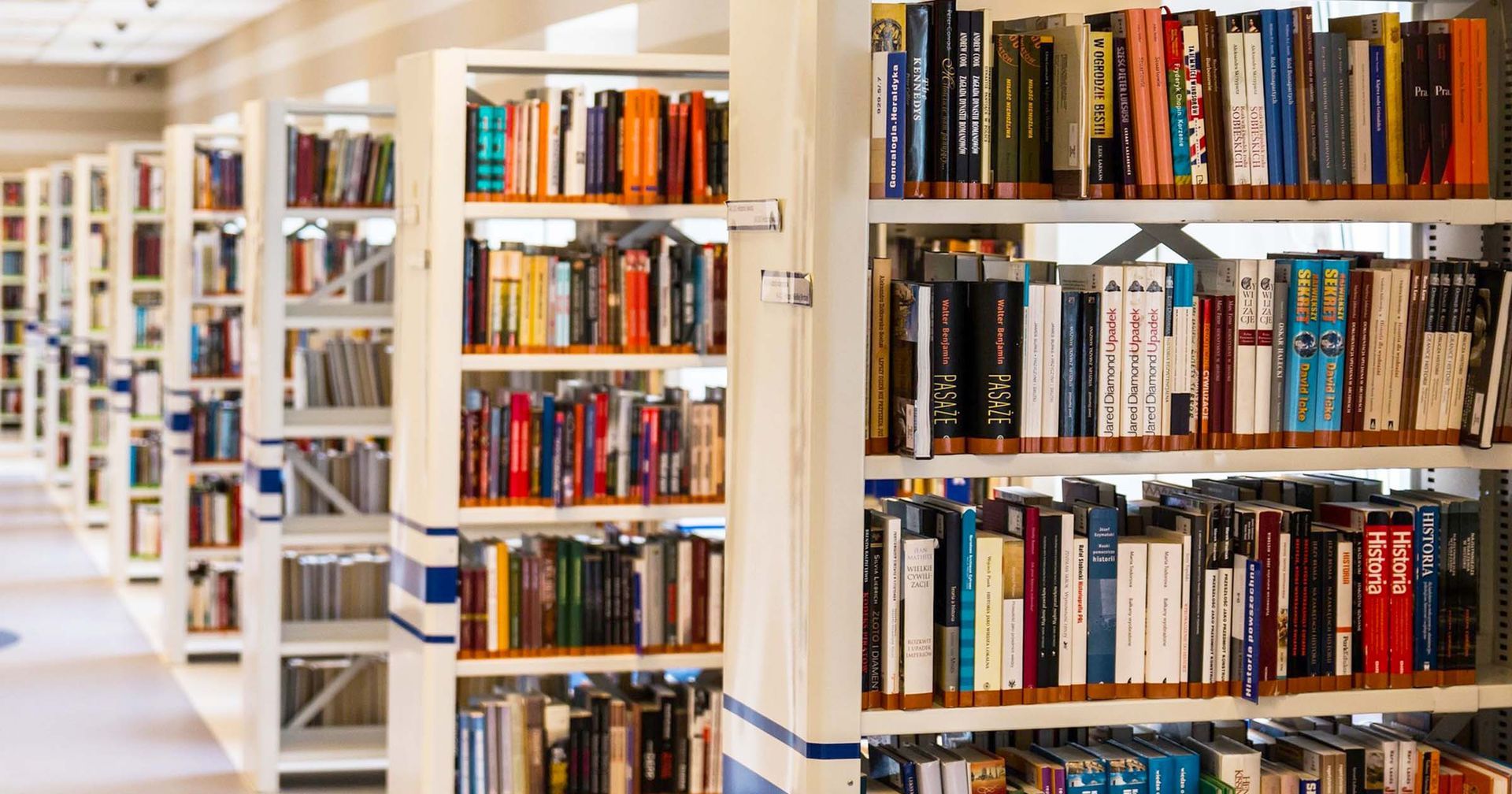
Pros and Cons of Public Education
Everything has its advantages and disadvantages, and public education is no exception to this rule. Understanding these can help you make a more informed decision.
The pros of public education include affordability and accessibility. Portugal boasts a broad network of public schools, making it convenient for both parents and students. Affordability is inherent, as public schooling is free for all, relieving parents of significant education costs.
Furthermore, public schools offer opportunities for language acquisition and integration into Portuguese culture. With Portuguese as the primary language of instruction, attending public school can significantly enhance proficiency in the language. Integration into local culture fosters a sense of belonging in the community among foreigners, allowing them to experience local cuisine, arts, and leisure activities.
However, the Portuguese public education system does have some disadvantages. Due to its universal nature, there may be a shortage of resources and teachers to cover all areas of knowledge, resulting in limited options. Additionally, the system is tailored to the Portuguese educational framework, making it more challenging for students to apply to higher education institutions outside of Portugal.
Pros and Cons of Private Education
Private schools offer a multitude of advantages. Firstly, the educational standards are typically higher compared to public institutions, and students have access to superior resources. Additionally, private schools excel in providing a diverse range of extracurricular activities, enriching students' knowledge across various fields.
In contrast to public schools, private institutions employ different languages of instruction such as English, French, Spanish, German, and others.
Private schools typically have smaller class sizes, classically ranging from 10 to 15 students. This enables teachers to closely monitor each student's progress, identify their strengths and weaknesses, and foster a deeper connection with individual students. Smaller classes also encourage greater interaction among peers, promoting confidence and facilitating the sharing of ideas and perspectives, ultimately leading to improved academic outcomes.
While private schools generally offer better facilities and achieve superior academic results compared to public institutions, they also come with certain disadvantages. The primary drawback is the associated costs; high-quality education at private schools often comes with a hefty price tag.
Another disadvantage of private education is the rigorous admission process, which can pose challenges for prospective students. Requirements such as academic records, entrance exams, and interviews may be daunting for many applicants.
Does the International Baccalaureate (IB) Exist in Portugal?
Yes, Portugal’s schools offer the opportunity for their students to graduate from the secondary level of education under the IB system. This system is recognised globally and allows students to study abroad in many universities. The IB diploma is characterised by developing student’s creativity and sense of community. In Portugal, only a few private schools and international schools offer the IB.
We can furnish you with detailed information about the schooling system in Portugal and recommend the best schools for your children. We are eager to help you with your transition to Portugal.
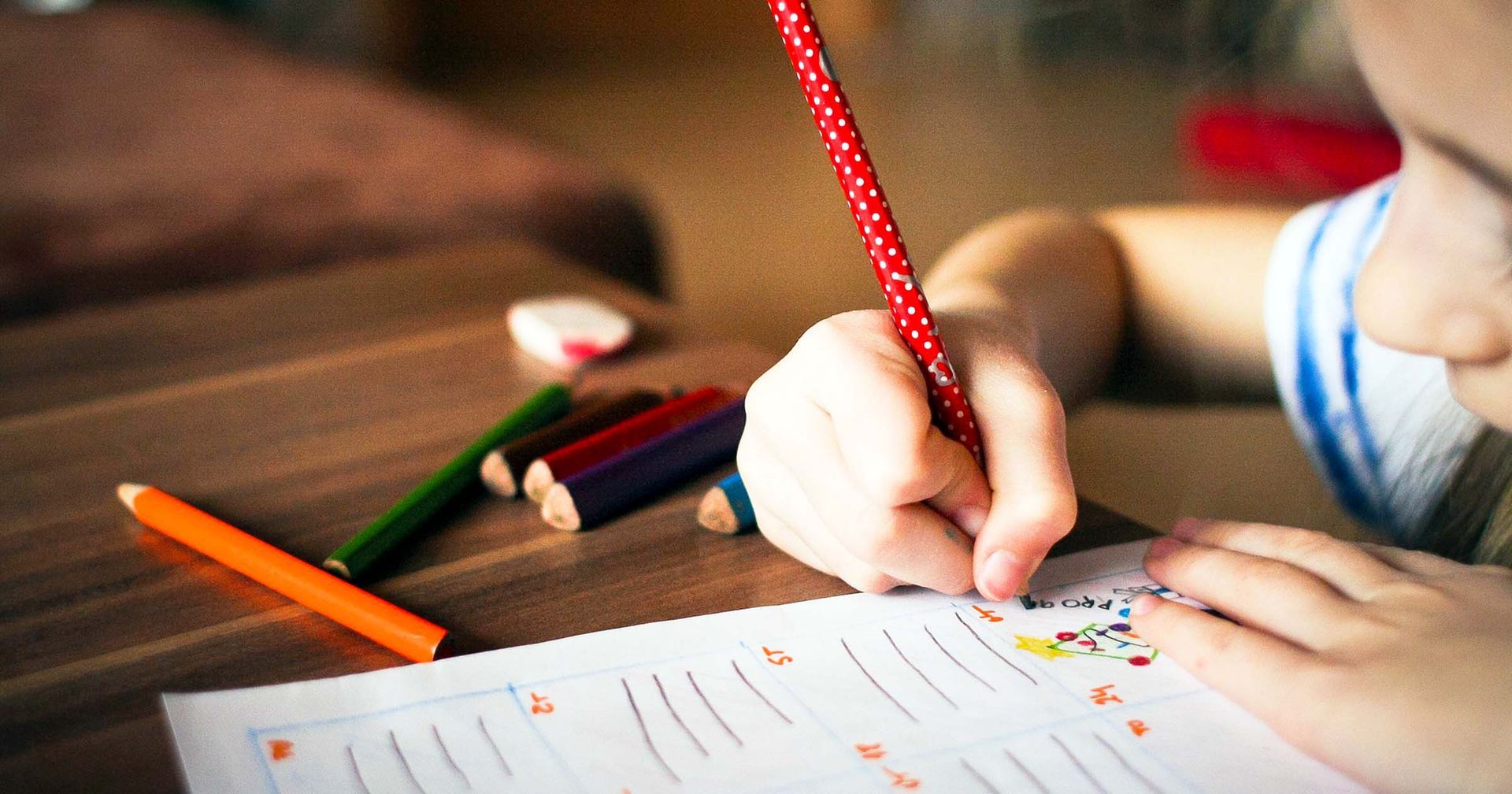
Educational Support for Expat Children
As previously mentioned, the language of instruction in Portugal is Portuguese. For students who do not know Portuguese, this initial hurdle can be challenging. Note that some schools offer Portuguese exams adapted for non-native speakers. It is advisable to research schools that have resources for international learners, and some schools even offer bilingual programs.
Support Children with Special Needs
Portugal has the will for an inclusive education system, and as a result, there is a wide range of public schools that already offer special education needs (SEN).
Adding to this, some organisations can provide additional and specific help for different needs that children have.
Higher Education
This level of education is not mandatory but is structured according to the principles of the Bologna Process, created to ensure comparability in the standards and quality of higher-education qualifications and implemented in 2005.
Following the implementation of the Bologna Process, higher education is structured into three levels:
- Bachelor’s degree, the first level of higher education;
- Master's degree, the second level of higher education;
- PhD, the third and final level of higher education.
These three levels became widely adopted in Portugal in the school year of 2009/2010.
In Portugal, higher education is characterised by a binary system, including university and polytechnic systems. Universities offer solid scientific training combining the expertise of teachers and research, while polytechnics focus on professionally oriented vocational and advanced technical training.
Higher education institutions have autonomy in scientific research, curriculum development, cultural programs, and disciplinary actions. This autonomy covers areas such as entry requirements, study plans, evaluation methods, and academic regulations.
Portugal is increasingly becoming a preferred destination for international students due to its high standard of living and affordable tuition fees, offering an excellent option for those seeking to study abroad. While universities are primarily situated in Lisbon and Porto, institutions are distributed across the country, including Coimbra, home to the oldest university in Portugal established in 1290.
Entry requirements vary based on the institution and degree type. Generally, applicants are expected to have completed secondary school to be eligible for university admission. Additionally, most institutions require entrance exams (provas de ingresso).
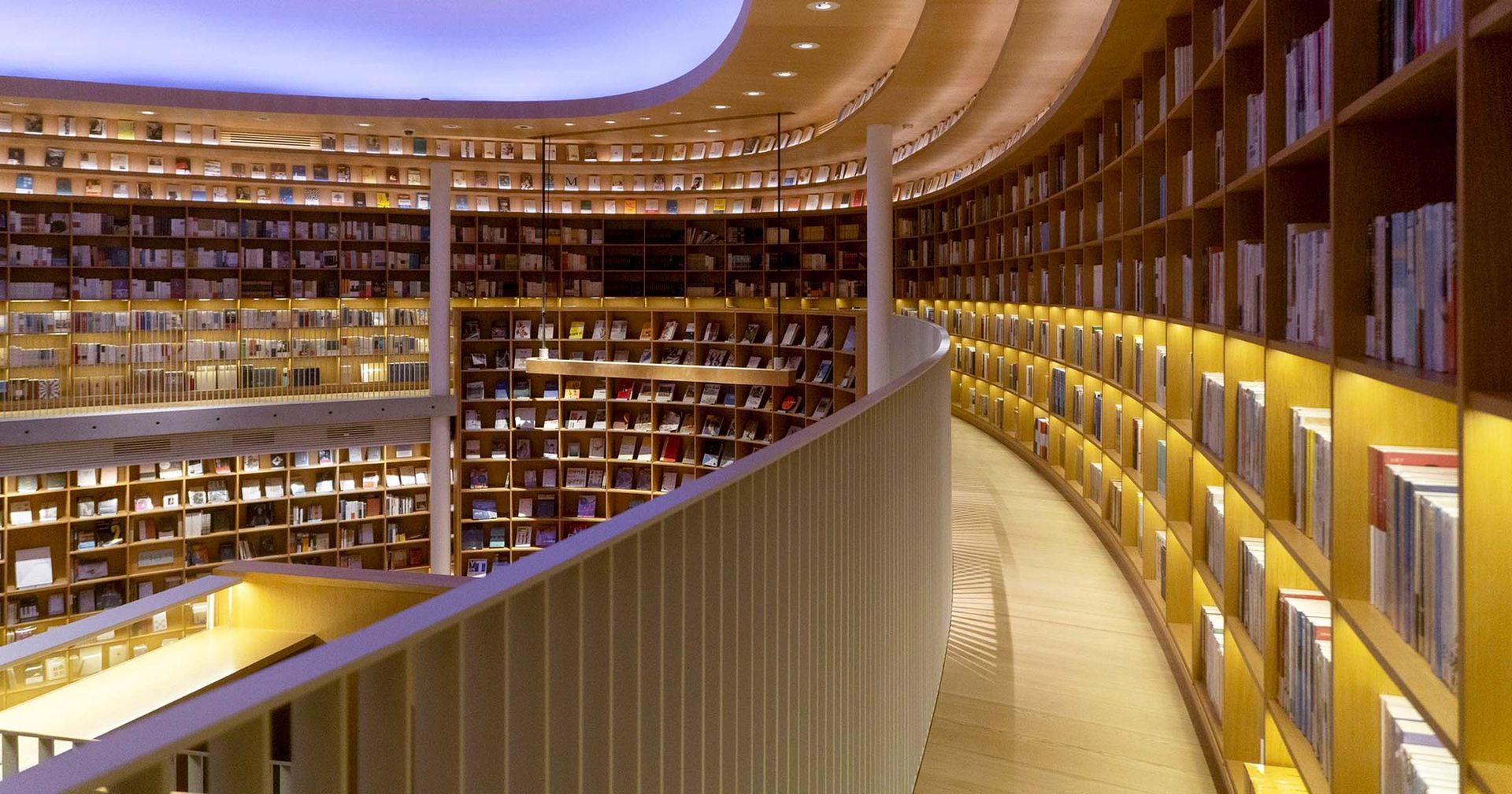
Adult Education
Adult Education and Training Courses (AET) offer flexible training pathways for adults to develop social, scientific, and professional skills while achieving basic or upper-secondary education. These courses vary in duration depending on the level of certification and include options like basic education, upper-secondary education, double certification, and professional competence development paths.
The curriculum of Adult Education and Training Courses typically includes:
- Basic Training: Focused on key competencies essential for obtaining a school qualification.
- Technological Training: Geared towards acquiring skills aligned with professional profiles and standards.
- Work-based Learning: Involves applying acquired knowledge in real-world settings like companies.
Individuals aged 18 and above searching for foundational or upper-secondary education, professional accreditation, or particular qualifications, including those facing challenges with literacy, can find immense value in these courses.
Completion of an Adult Education and Training Course leads to certifications in basic or upper-secondary education, professional qualifications, or both (double certification), aligning with levels 1 to 4 of the National Qualifications Framework.
These courses are available at public or private educational institutions, vocational training centres under the IEFP - Instituto do Emprego e Formação Profissional, as well as other authorised entities within the National Qualifications System network.
Vocational Education
Certified Modular Training (CMT) offers flexible and modularised pathways known as Short-Term Training Units (STTU) or Competence Units (CU) to provide easier access to qualifications. These training units, lasting 25 or 50 hours each, are based on nationally recognised competence and training standards.
CMT caters specifically to adults aged 18 and above who lack the necessary qualifications for employment or career advancement. By completing a modular training path, individuals receive a certificate detailing their successful completion of units.
Successful completion of Certified Modular Training can lead to obtaining qualifications ranging from levels 1 to 5 within the National Qualifications Framework. Additionally, it can open doors for pursuing short and medium-term paths available in the National Catalogue of Qualifications.
Certified Modular Training is offered in various settings including public or private educational institutions, vocational training centres managed by IEFP - Instituto do Emprego e Formação Profissional, as well as other entities like municipalities, companies, trade unions, and associations affiliated with the National Qualifications System network.
How Can Belion Assist with Your Life in Portugal?
We provide a complete selection of high-quality Portuguese services to meet your requirements and exceed your expectations.
Have a question? Contact us
We will respond by email within no longer than one working day.
